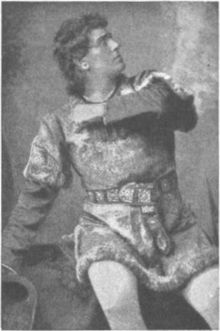Ernst Kraus

Ernst Kraus (June 8, 1863 – September 5, 1941) was a German dramatic tenor who made his mark in the operas of Richard Wagner. He first decided to embark on an operatic career when he heard leading singers performing in Nuremberg. He studied voice initially in Milan with and then returned to Munich to finish his tuition with .
Kraus debuted in Mannheim as Tamino in Die Zauberflöte on March 26, 1893. He came to the United States in 1894, where he was engaged as principal tenor of the Damrosch Opera Company; he returned in 1895. He was appointed the leading tenor of the Berlin Staatsoper in 1896, holding that position for 27 continuous years. During this period, he distinguished himself in the German repertory. In 1901, he appeared at the Bayreuth Festival as Siegmund in Die Walküre, in which role he made his New York Metropolitan Opera debut on November 25, 1903.
He retired from opera in 1924 in order to teach, and died in Wörthsee, Germany, in 1941. His voice was noted in his prime for its exceptional power and solidity rather than for its beauty or suavity of phrasing. It is preserved on a number of acoustic discs which he made prior to World War I. Some of these are available on CD anthologies of historical Wagner recordings. He also recorded several cylinders for Edison's German branch during the period 1905-1910, among them "Am Stillen Herd" from Meistersinger (no. 15194) and "Liebeslied" from Walkure (no. 15256).
References[]
- David Ewen, Encyclopedia of the Opera: New Enlarged Edition. New York; Hill and Wang, 1963.
- The New York Times, November 19, 1903: "More Opera Singers Here".
- Physical copies of Edison two-minute wax cylinders 15194 and 15256.
- Girard, Victor and Harold M. Barnes, Vertical-cut Cylinders and Discs. London: British Institute of Recorded Sound, 1964.
- 1863 births
- 1941 deaths
- German operatic tenors
- German opera singer stubs
